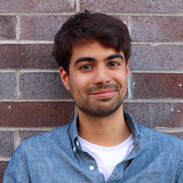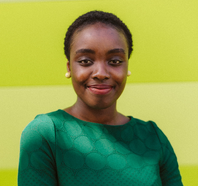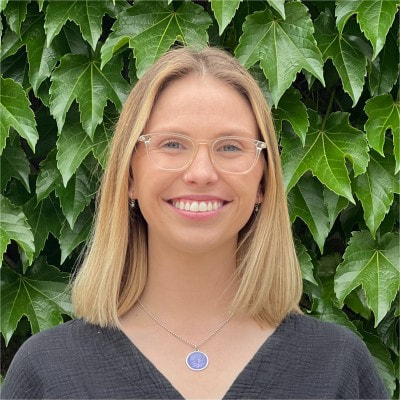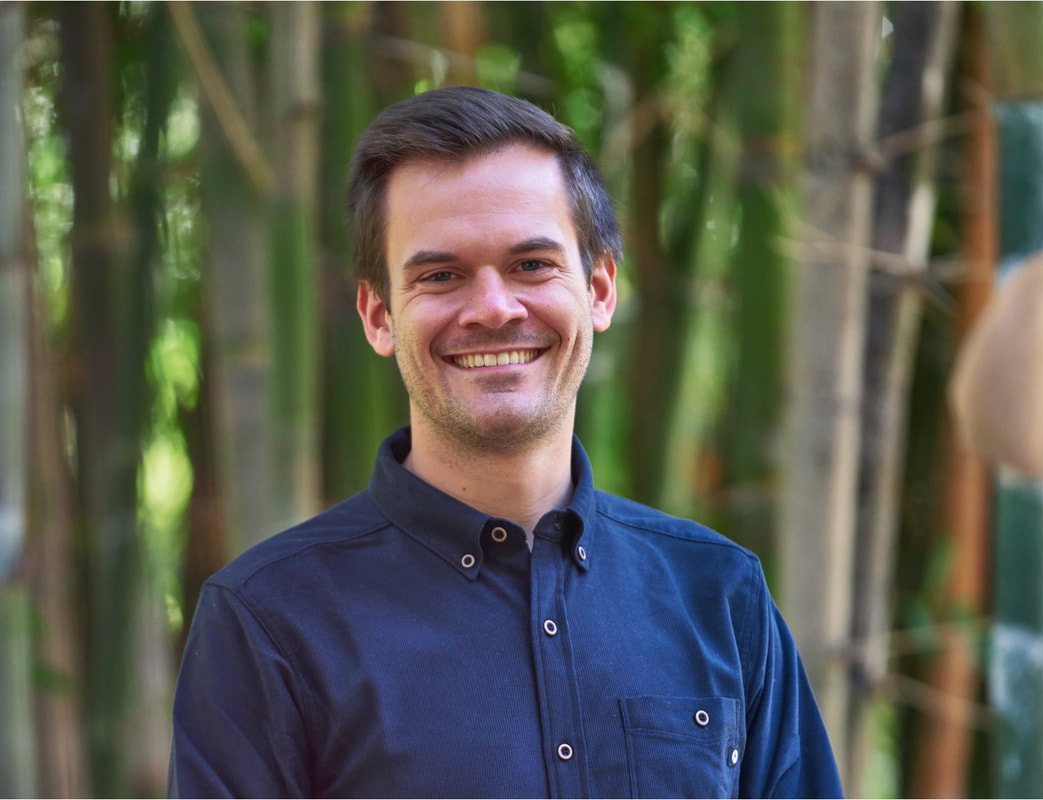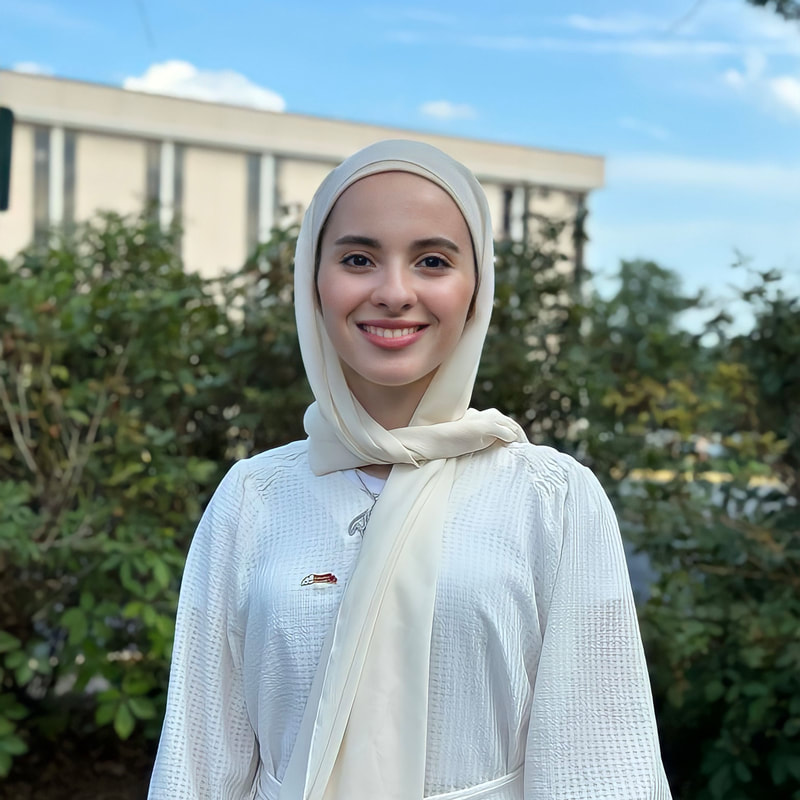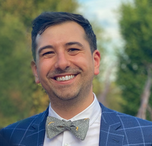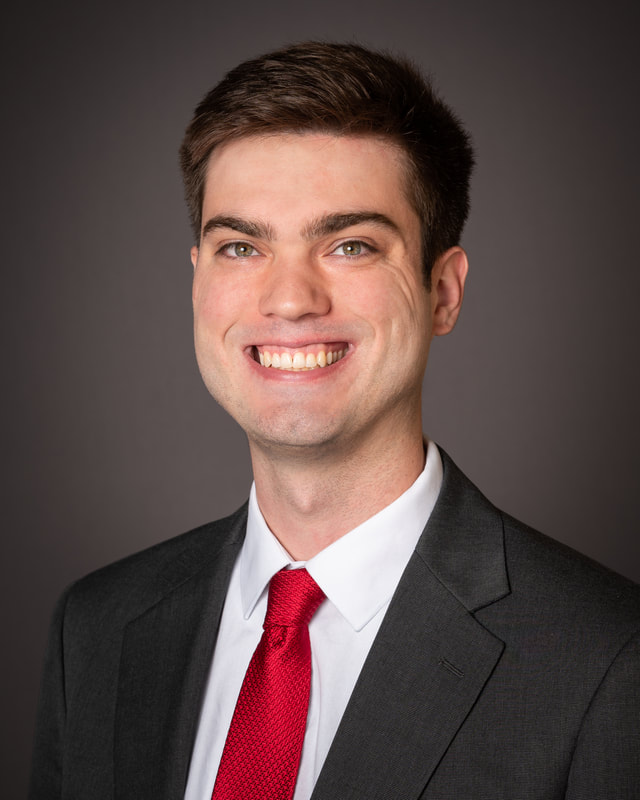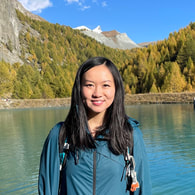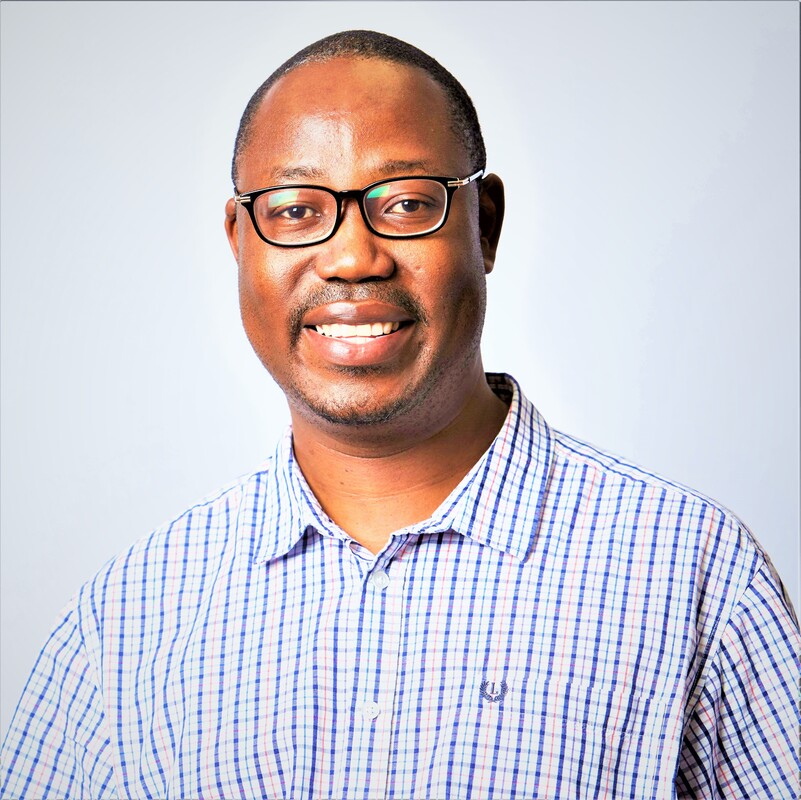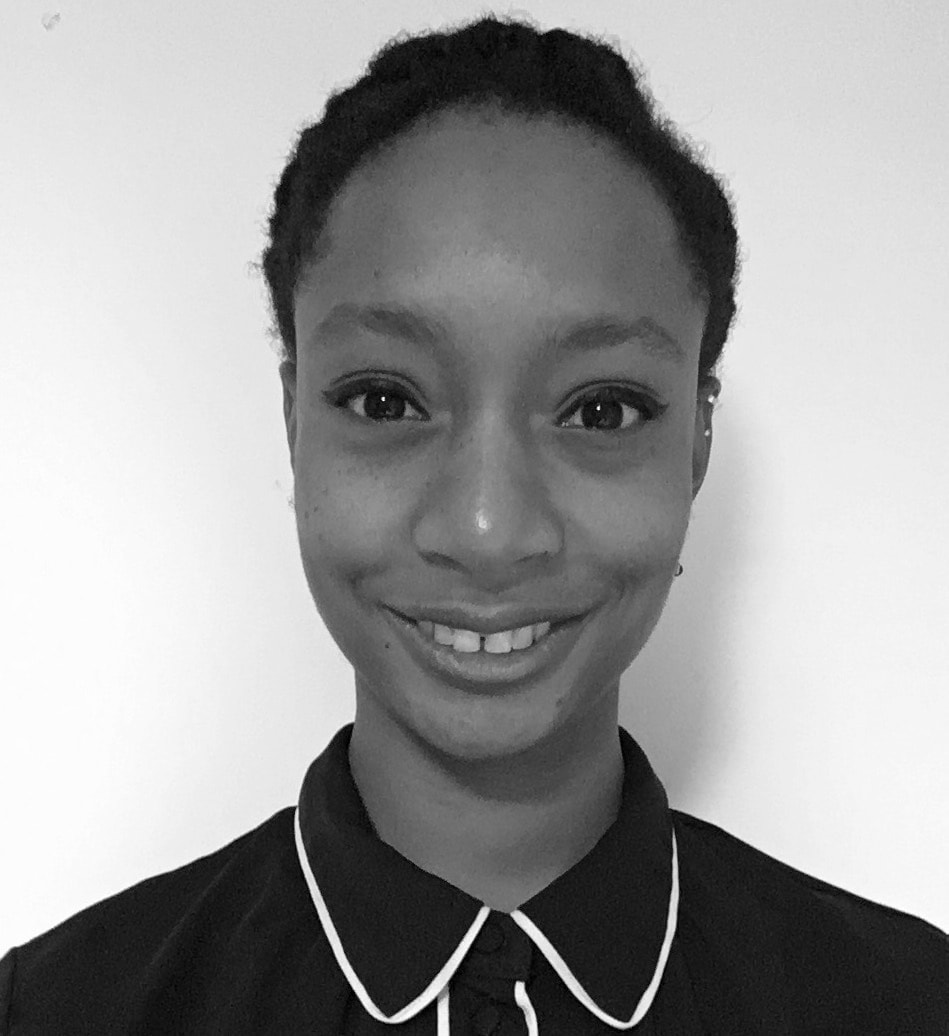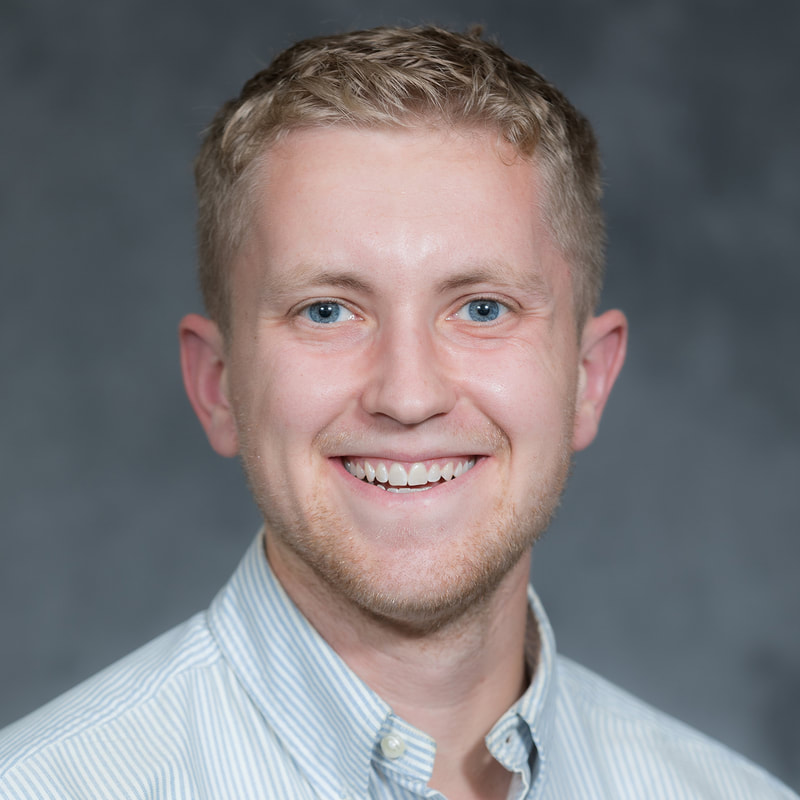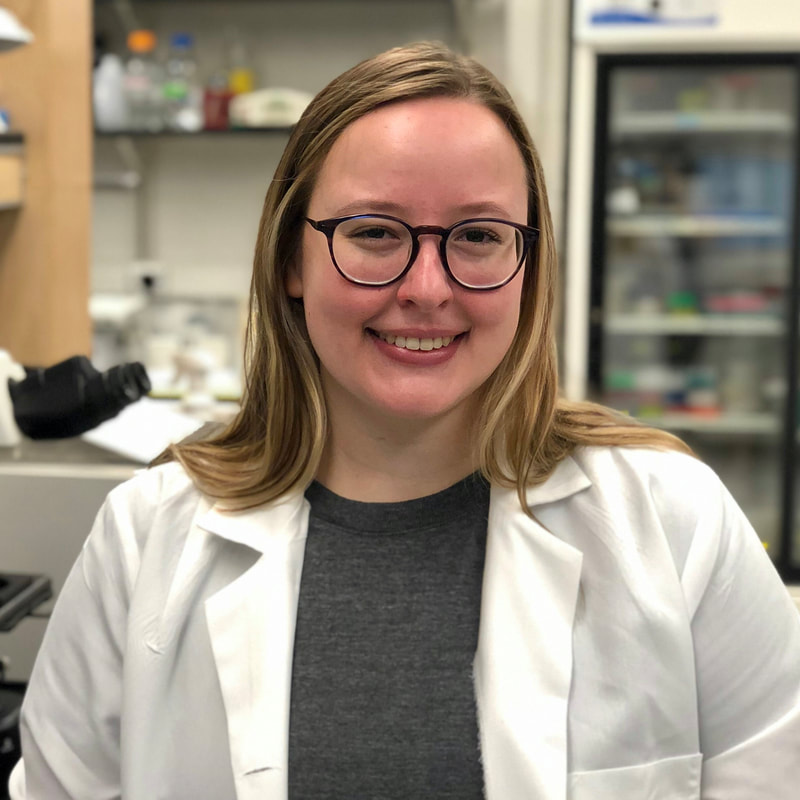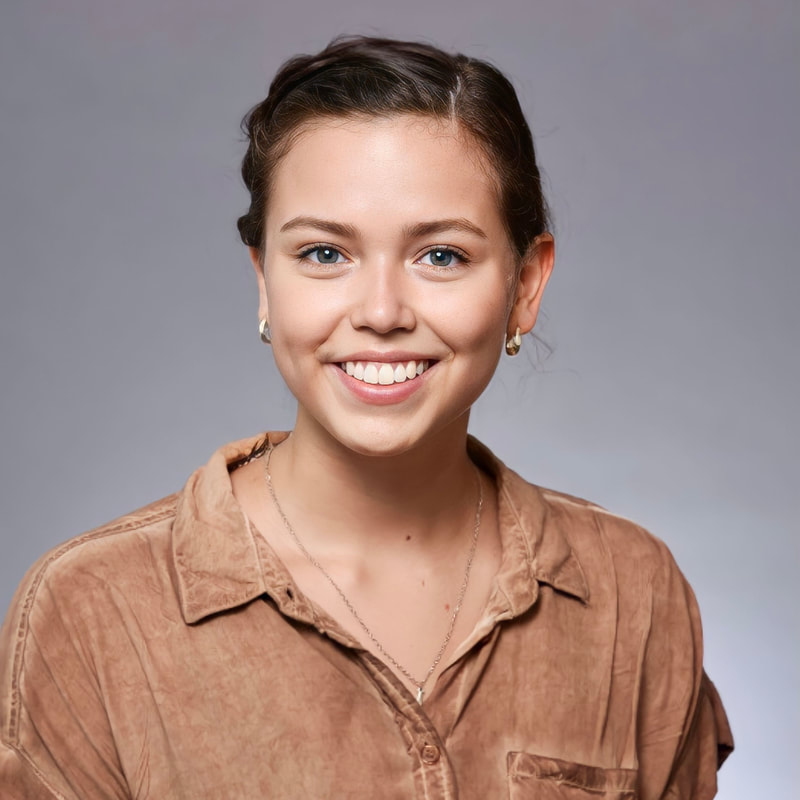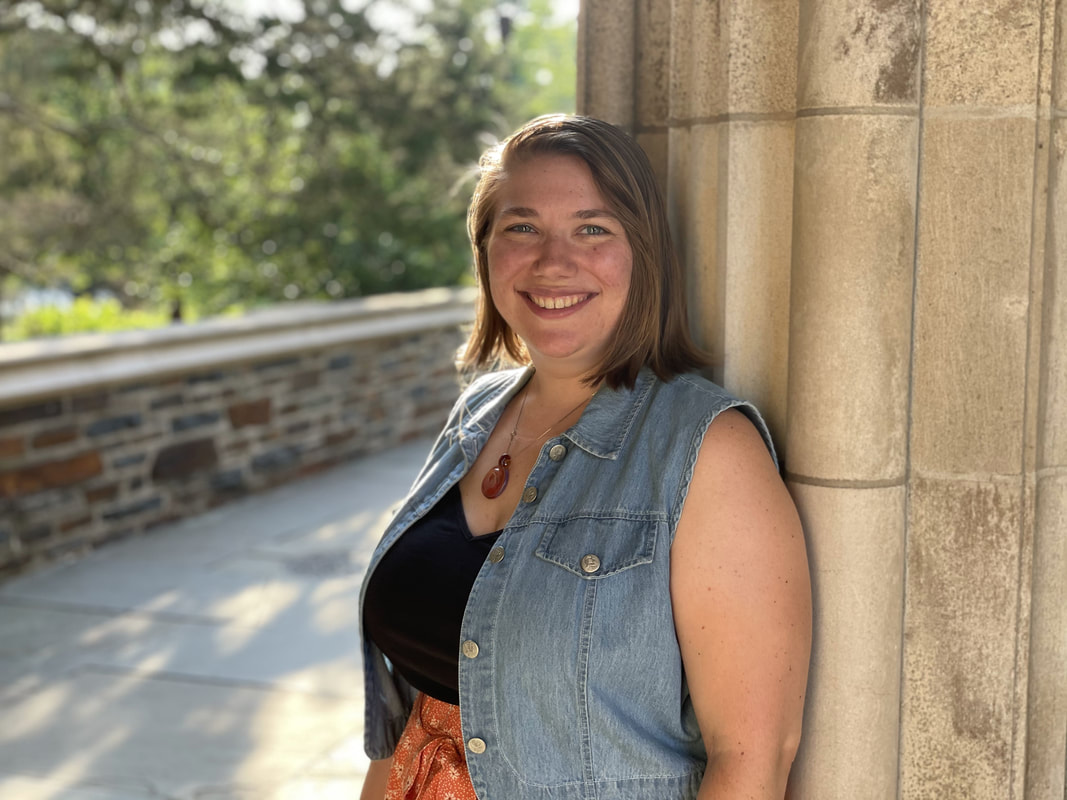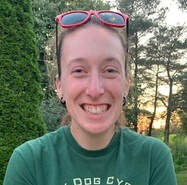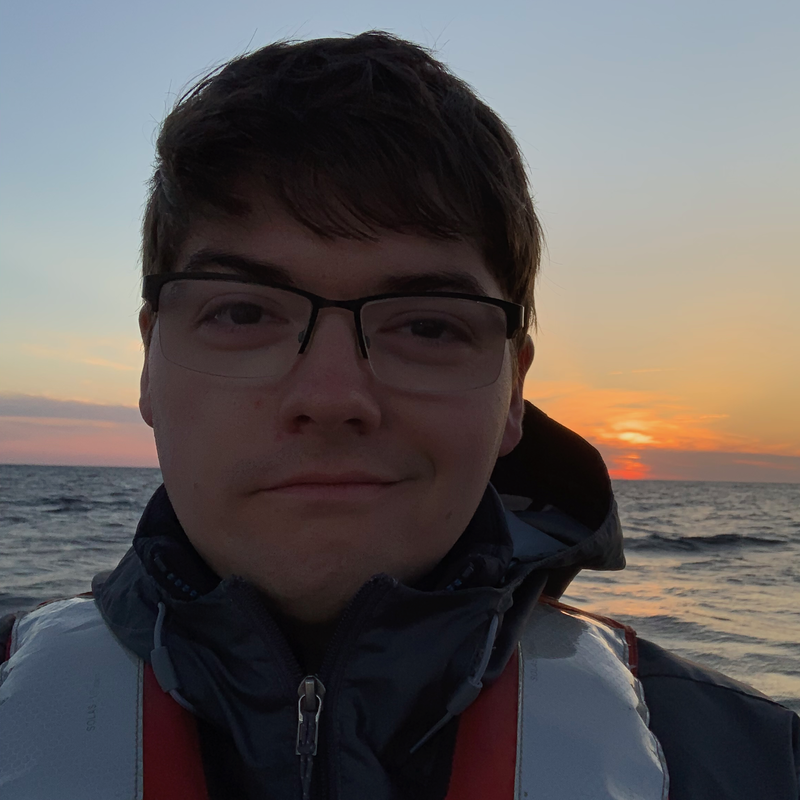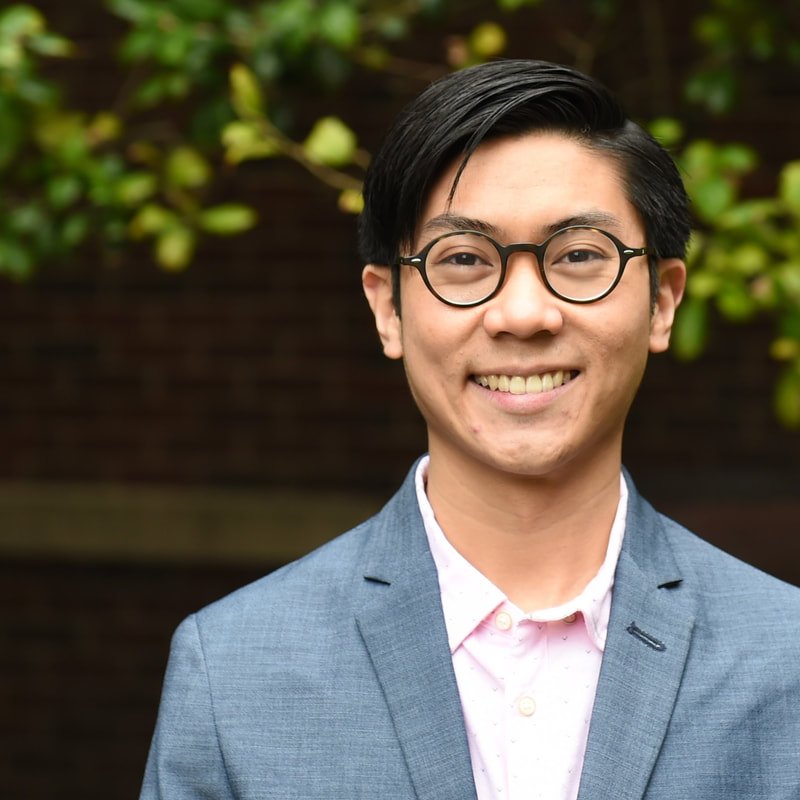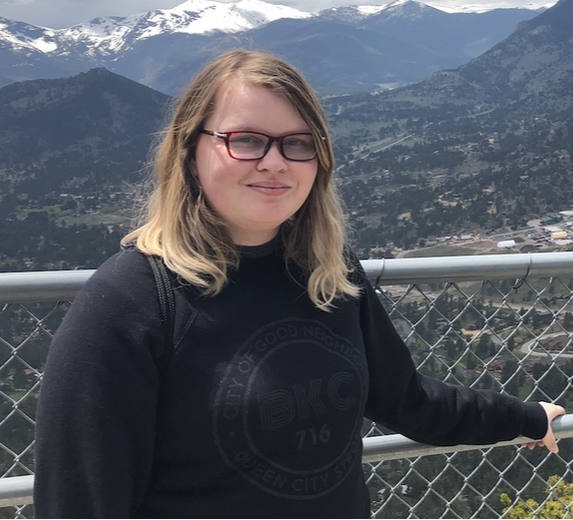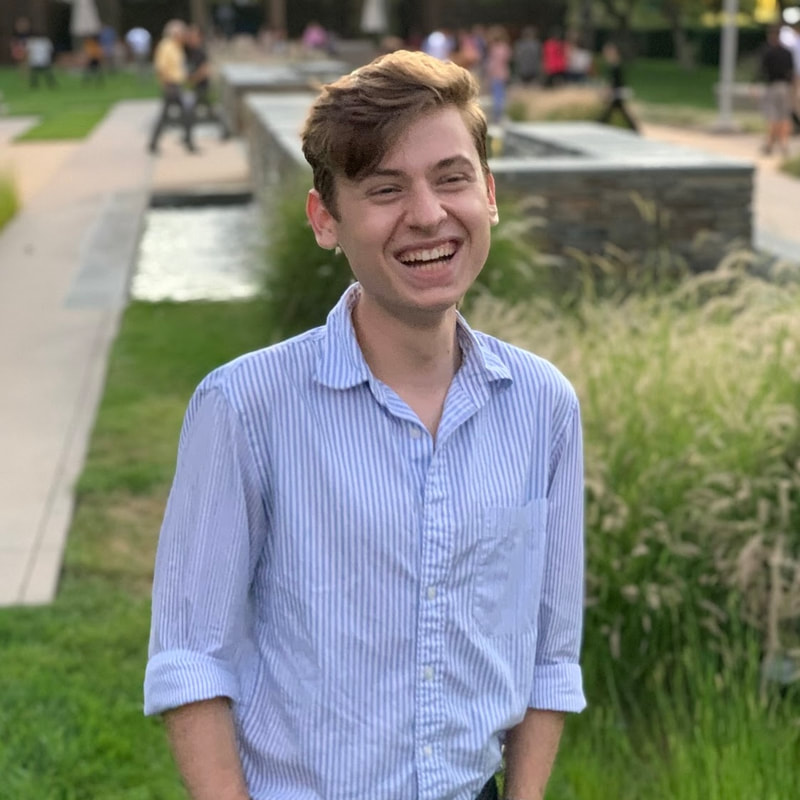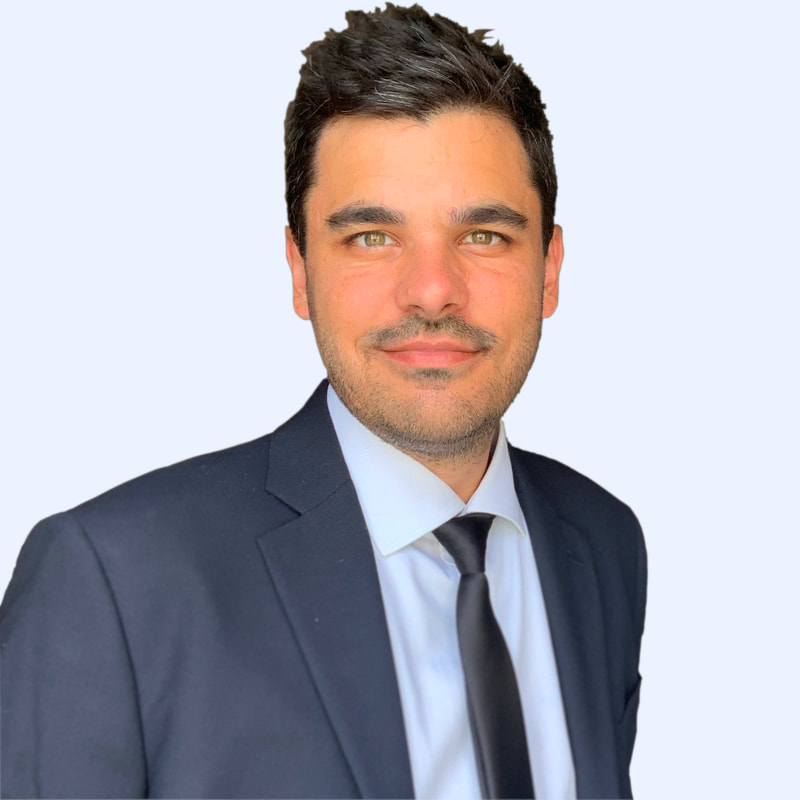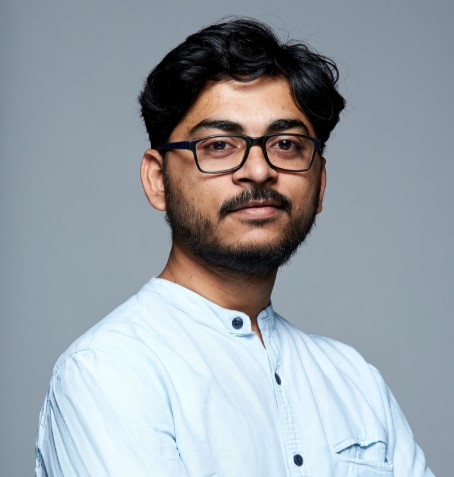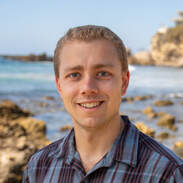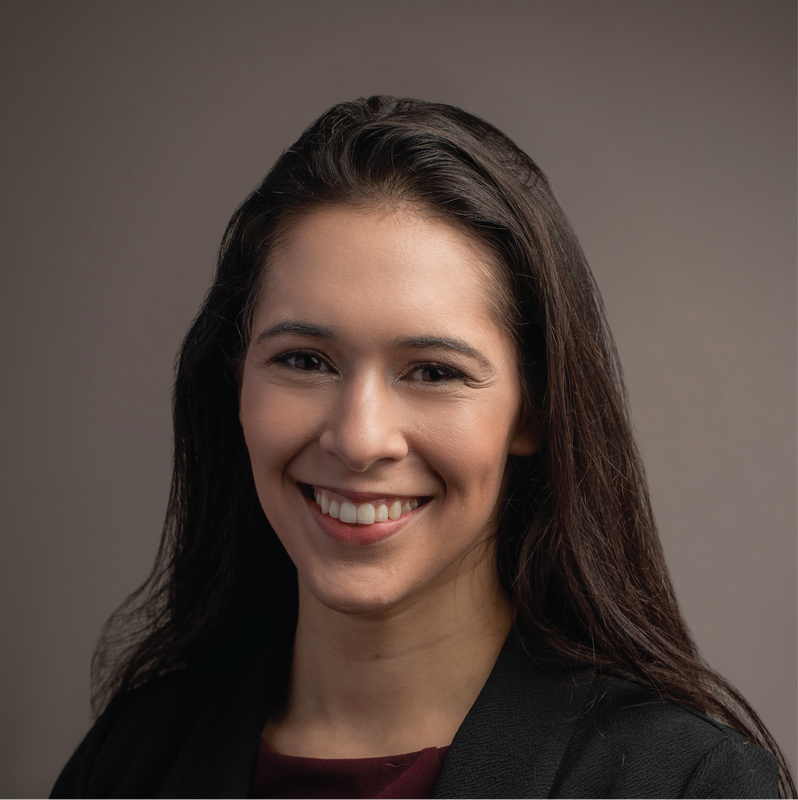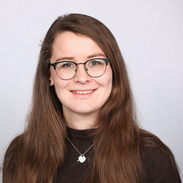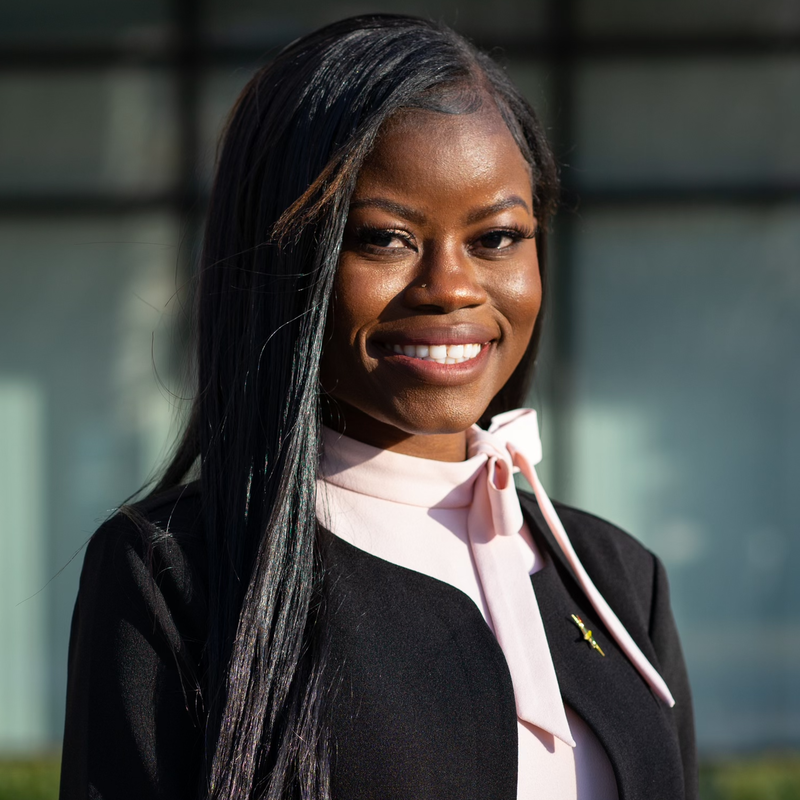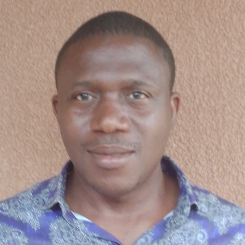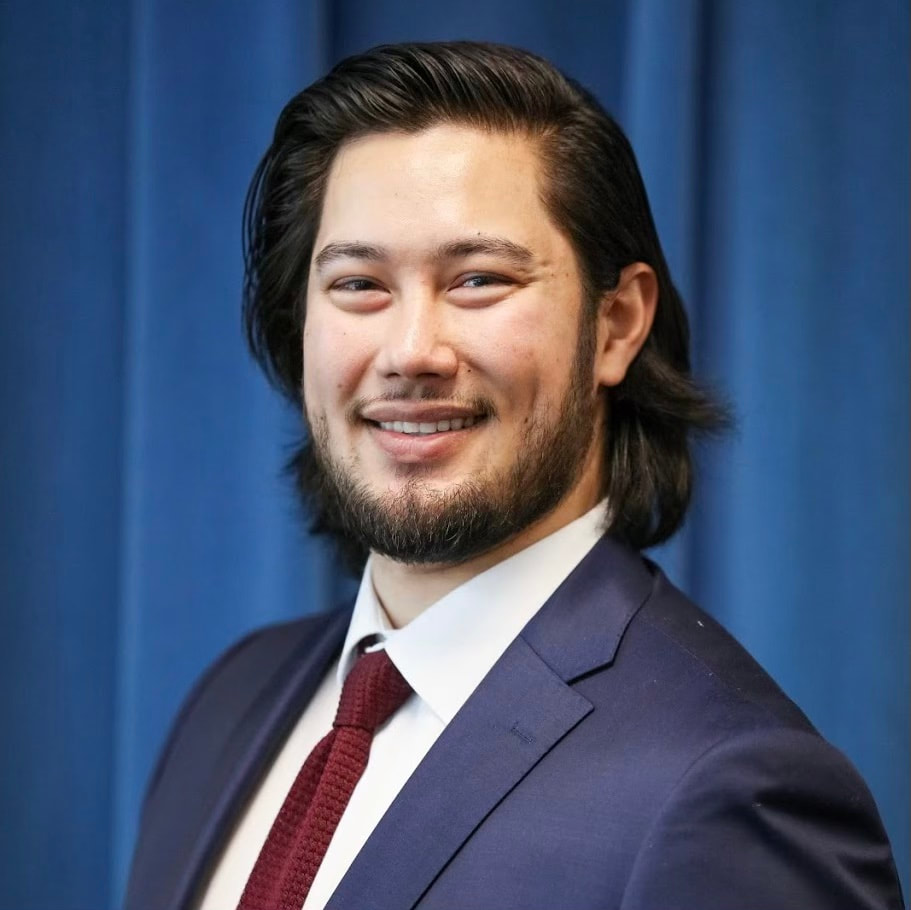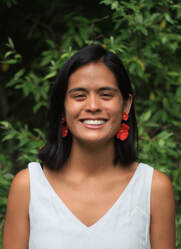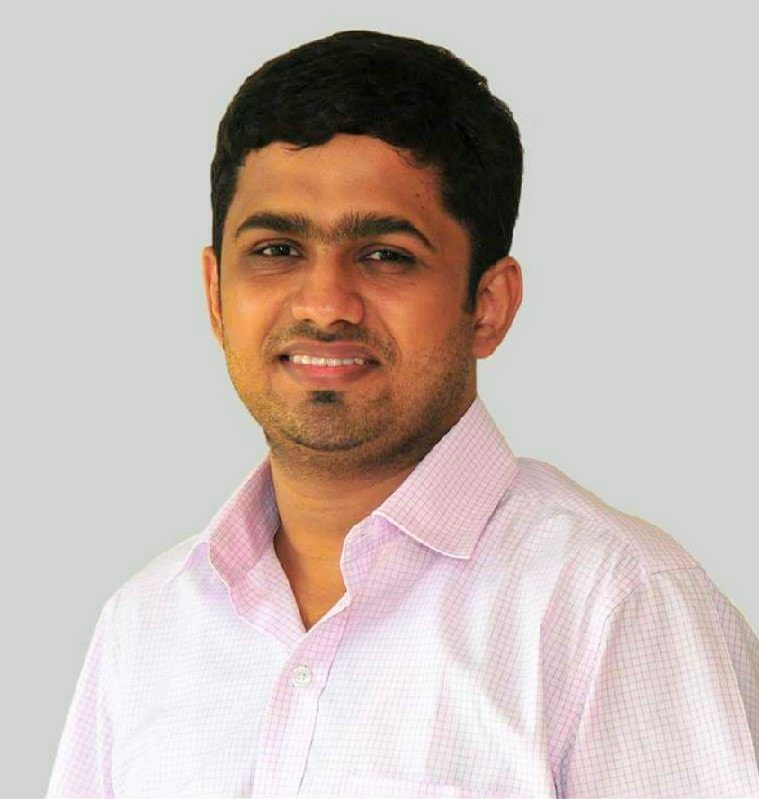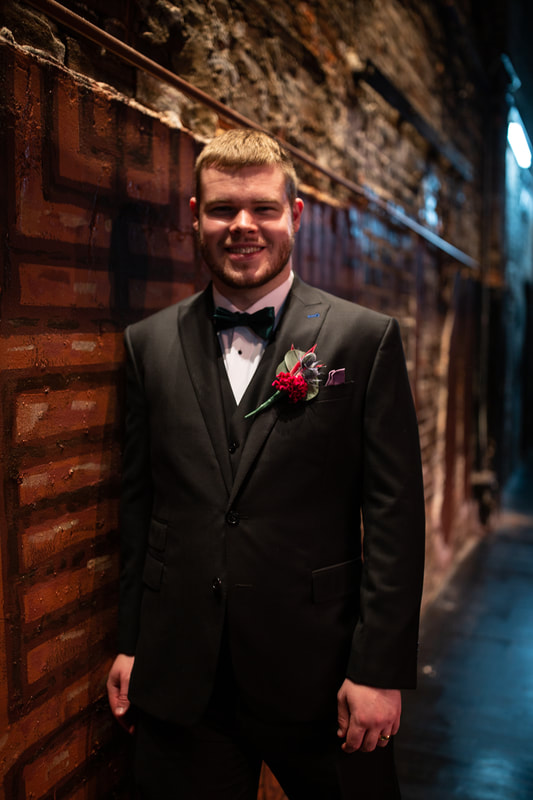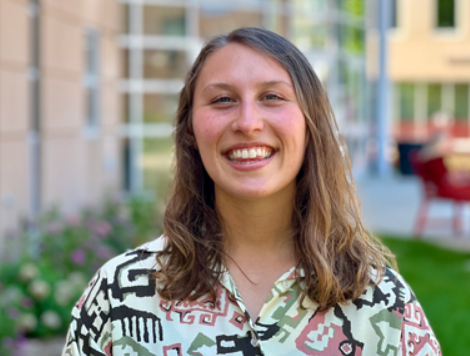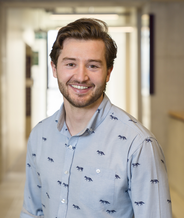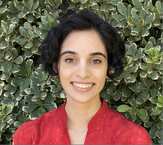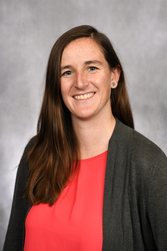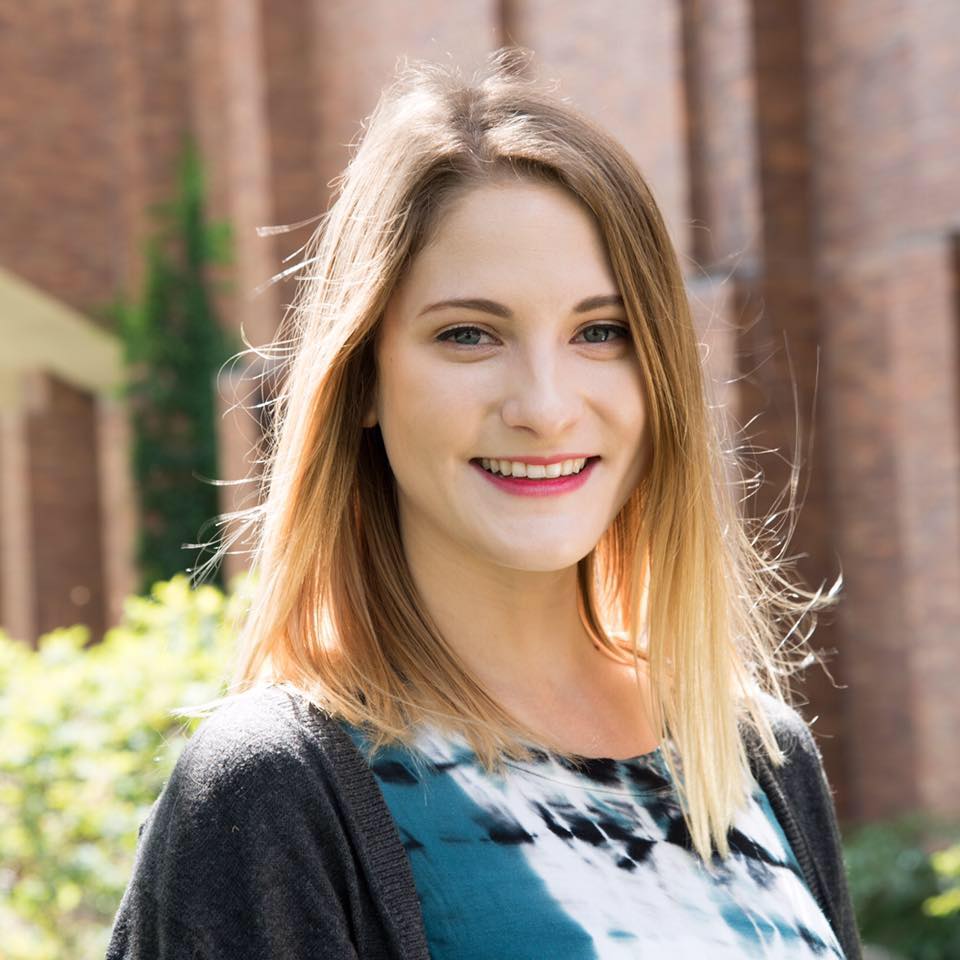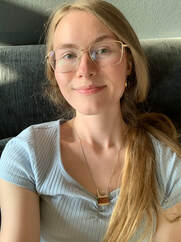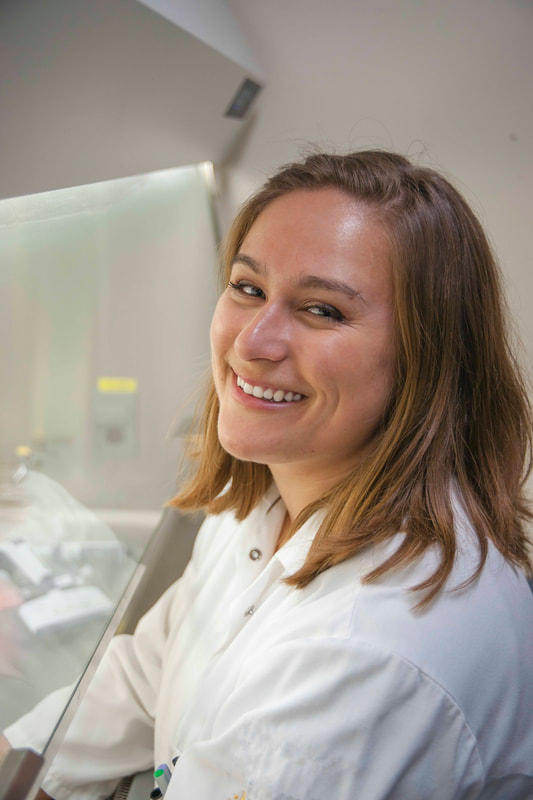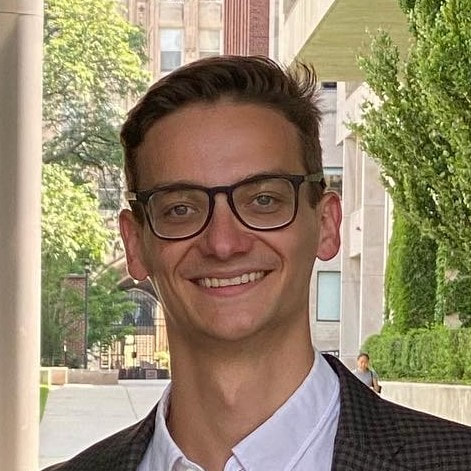The JSPG editorial board
JSPG's editorial board is comprised of early career researchers who are rising stars in the field and share JSPG's mission of empowering students and early career researchers to substantively engage in the policy debate through research and writing.
Follow JSPG on Twitter, Facebook, LinkedIn, Instagram, and YouTube. Subscribe to our newsletter.
Follow JSPG on Twitter, Facebook, LinkedIn, Instagram, and YouTube. Subscribe to our newsletter.
Editor-in-Chief
|
|
Andy Sanchez is a Senior Researcher in Media, Technology, & Society at the Sustainable Media Lab in The Hague. He is currently leading an international, cross-sector initiative to address misinformation and digital literacy ahead of the 2024 European Parliamentary elections. His research considers the ethics and regulation of disruptive technologies, with a particular focus on how to safeguard human rights as our society becomes increasingly digital. In pursuit of these goals, he has published academic papers, policy memos, Op-Eds, and press releases, and he has advocated to US Congressional offices. He holds a PhD in Chemical & Biomolecular Engineering from Cornell University, as well as an MFA in Creative Writing from New York University. He currently teaches Dutch undergraduate students about emerging issues in technology policy, and was formerly the Co-instructor for Cornell’s Science Policy Bootcamp, where he helped students develop and execute advocacy plans on a range of science policy topics. At Cornell, he also co-founded an initiative to address COVID-19 vaccine hesitancy in upstate New York. Prior to becoming Editor-in-Chief, Andy served JSPG as an Associate Editor and Assistant Editor-in-Chief. He is passionate about using science in the pursuit of social justice.
|
Assistant Editors-in-Chief
|
|
Ope Oyewole graduated with a Ph.D. in Immunology, Pathology, and Infectious Diseases from the University of Nebraska Medical Center, an M.S. in Biochemistry from The University of Tulsa, and a B.S. in Biomedical Chemistry from Oral Roberts University. She was a California Council on Science and Technology (CCST ) Science and Technology Policy Fellow, placed in the Climate and Sustainability Branch of the California Department of Insurance. She also served as an Associate Editor with JSPG. She is currently the Central Region Onboarding Chair at the National Science Policy Network (NSPN). Ope is interested in global science and health policy and in promoting better STEM education, research, and healthcare access and delivery across Africa.
|
|
|
Abbey Boyd (she/her) is an ORISE Research and Leadership Postdoctoral Fellow at USDA-ARS in Beltsville, MD. She works with a committee of senior scientists to facilitate collaborations and cross-cutting research projects that advance agriculture research to address complex issues. She graduated in July 2022 from Iowa State University with a PhD in Food Science, and he researched focused on improving in vitro digestion protocols for phytosterol analysis. She is interested in food and agriculture as solutions to some of our biggest challenges, from human nutrition to climate adaptation and enjoys working at the nexus of research and government.
|
|
|
Conner Philson is a field biologist and behavioral ecologist studying the evolution and fitness consequences of social behavior. He is currently a Ph.D. Candidate in Ecology and Evolutionary Biology at UCLA and a Graduate Fellow at the Rocky Mountain Biological Laboratory. Conner’s research has been featured for popular audiences by the likes of National Geographic, American Scientist, and CNN. His science policy work focuses on mitigating climate change and its impacts, the loss of biodiversity, national security, and scientific infrastructure. Conner serves on the Board of Directors for the non-profit Organization of Biological Field Stations, chairing their Outreach and Communications Committee focusing on strategic engagement with policymakers. He also serves as the graduate student representative to his department, on the Strategic Planning Committee for the Rocky Mountain Biological Laboratory, as was previously an Associate Editor for JSPG.
|
Associate Editors
|
|
Sewar Banimusa is an M.D. candidate at Yarmouk University, Jordan. She is passionate about pioneering innovations in regenerative scientific research, synthetic biology, and robotics applications within medicine. Currently serving as the Professional Development Coordinator at the Science Diplomacy Committee at NSPN, she aims to effectively communicate scientific advancements through open science and diplomacy, ensuring accessibility and inclusivity in the field. With a relentless dedication to promoting youth engagement in healthcare innovation and policy, especially in low-resource settings, she actively contributes to student associations. As a MEPI alumnus affiliated with Georgetown University and equipped with training in Communication and Leadership from the University of Delaware, Sewar possesses a rich background in projects management, fostering international change, and leveraging data-driven insights. Her involvement spans various organizations, including the UN MGCY Science-Policy Interface and IFMSA-Jo, where she served as a Youth Expert and Local Secretary General, respectively. Currently mentored by the American Geophysical Union (AGU) and contributing as a member to YPFP & Governing Health Futures 2030 to continually shape the future of healthcare. Beyond scholarly pursuits, Sewar enjoys exploring nature, flâneuring, reading science magazines, and sharing the joy of baking with friends. Her multifaceted curiosity spanning surgical innovation, aerospace medicine, and planetary healthcare underscores her enthusiasm to forge an innovative career in medicine.
|
|
|
Christopher Baryiames is a postdoctoral scholar at the University of Virginia. He received his doctorate in physical chemistry from the University of Texas at Austin, where he served on the Dean's Office Graduate Council and in the Graduate Student Assembly. Currently, Christopher is studying the forces that govern self-assembly in cells. His policy interests include science diplomacy, STEM education, and energy policy. In his free time, Christopher enjoys hiking, rock climbing, and photography.
|
|
|
Alexander Belles is a Ph.D. candidate in Astronomy and Astrophysics at Penn State University. His research seeks to understand the obscuring effects of material in the interstellar medium of galaxies using ultraviolet emission, which traces recent star formation. He completed his B.A. in Physics and Mathematics at the State University of New York College at Geneseo. Alex has been a member of the Science Operation Team of the Neil Gehrels Swift Observatory, a NASA mission operated out of Penn State. As a graduate student, he has been involved with the Science Policy Society at Penn State. In 2022, he was a Mirzayan Science and Technology Policy Graduate Fellow at the National Academies of Sciences, Engineering, and Medicine, where he worked with the Space Studies Board on issues related to planetary protection policy and the research and operations needs of the space weather community. His interests beyond space policy include issues related to open science and water policy.
|
|
|
Mary Jialu Chen is a doctoral candidate in the department of Mechanical and Process Engineering at ETH Zurich, where she studies cell-surface interactions and manufacturing process design for a novel, affordable polymeric heart valve. Mary is especially interested in supporting translational research, technology transfer, and evidence-based decision making. She currently serves as Vice-President of Telejob, an entrepreneurial-driven non-profit organization for scientific staff at ETH Zurich and promotes issues on the science-policy interface with Science & Policy Exchange. Throughout her academic career, Mary has also served as a director of the Waterloo Nanotechnology Conference and advocated for graduate students as a board member of her departmental association. Mary obtained both her Bachelor’s and Master’s degrees in Nanotechnology Engineering from the University of Waterloo, while holding the Waterloo Institute for Nanotechnology Nanofellowship, an Ontario Graduate Scholarship, and the University of Waterloo President’s Graduate Scholarship.
|
|
|
Jekoniya Chitereka is a PhD Candidate in Politics and International Studies at the University of Leeds. His research focuses on the intersection of global development and international relations using astronomy, specifically the Square Kilometre Array (SKA) as a case study in Africa. Prior to joining the University of Leeds, Jekoniya graduated with a BSc Honours Degree in Psychology and an MSc in Population Studies both obtained from the University of Zimbabwe. At the University of Leeds, he doubles as a teaching assistant to first year students in the School of Politics and International Studies. Previously, Jekoniya worked in the health sector in Zimbabwe as a research, monitoring and evaluation expert where he was instrumental in setting up national M&E systems for the integration of HIV and reproductive health. He later worked on the national science, technology, and innovation system of Zimbabwe as a research coordination manager with the Research Council of Zimbabwe playing the intermediary role, representing, and negotiating the interests of academia, government, business, and other actors in the innovation system. It is this role that ignited him to pursue further studies and explore power dynamics involved in science. Jekoniya is particularly interested on the governance of science, diplomacy and how power is constructed around the science discourse.
|
|
|
Cherrelle Dacon is a postdoctoral fellow at the National Institute of Allergy and Infectious Diseases. She completed her PhD in Infection, Immunology and Translational Medicine at the University of Oxford as a Rhodes Scholar. Her current research utilises high-throughput methods to isolate and characterise human monoclonal antibodies with the ultimate goal of developing effective therapies for COVID and malaria. While at Oxford, she co-organised the Rhodes Trust’s Healthcare Forum - an annual convening of students, academics, policymakers and international stakeholders in global health. She currently engages with the science policy community as a contributor to the Science Policy for All discussion group. Cherrelle is interested in intersectional approaches to advancing health equity, policies that shape global health security, and advocating for greater inclusion of science and technology issues in foreign policy agendas. Outside of academia, she is an avid hiker and enjoys learning about other cultures through food.
|
|
|
Christopher Dade is a National Defense Science and Engineering Graduate fellow and PhD candidate in Chemistry at the University of Wisconsin—Madison where he studies the structure and function of proteins related to bacterial virulence. His work focuses on developing a system for screening compounds as possible anti-virulence drugs that can disarm pathogens without the same resistance pressures associated with classic antibiotics. He holds a B.S. in Chemistry from the University of Missouri and an M.Sc. in Science and Health Communication from Dublin City University where he studied the drivers of public polarization on science policy in democratic societies. He has also obtained a Ph.D. minor in Life Sciences Communication and served as a WiSCIENCE Public Service Fellow with the Wisconsin Department of Natural Resources. He is passionate about empowering fellow early-career scientists to engage with policy processes and has served for two years as co-president of Catalysts for Science Policy—the graduate student science policy group at UW–Madison. Chris is driven to live out the Wisconsin Idea and explore new models of engagement between science and society.
|
|
|
Christina Del Greco is a PhD candidate in Genetics and Genomics at the University of Michigan Medical School. Her current research is on rare disease caused by defects in the mitochondria's ability to make essential proteins. Christina has a B.S. in Biological Sciences from the University of Notre Dame, where she also completed a senior thesis on issues surrounding genetic data privacy through her minor in Science, Technology, and Values. At Michigan, Christina is a member of the Science, Technology, and Public Policy graduate certificate program, and she is involved with on-campus science policy and science communication organizations. Outside of Michigan, Christina is also involved with the American Society of Human Genetics where she writes for the trainee newsletter, "The Nascent Transcript," and is also completing the Advocacy Certificate for Human Genetics and Genomics Trainees. Her main policy interests are in genetic privacy issues, regulation of biomedical innovations, and health policy.
|
|
|
Mikayla Eppert is a current Ph.D. candidate in the Basic Biomedical Sciences doctoral program at the University of Texas Southwestern (UTSW) Medical Center with an emphasis in Genes, Development, and Disease. She previously received her bachelor’s degree in Spanish and Biochemistry at the University of Iowa in 2021. Her current research focuses on spatial organization of gene expression machinery and the genome within the nucleus during cell-lineage specification specifically in the context of cardiovascular development. At UTSW, Mikayla has been involved in efforts to advance equity and inclusion through her active participation in mentorship and her teaching experiences with community college students at Dallas College for the mINiTERN program. Mikayla is passionate about advancing accessibility of science through equity and inclusion efforts. She is especially interested in improving communication between scientists, legislatures, and the general public to bring necessary clarity to complex topics that span the boundaries of science, social issues, and policy.
|
|
|
Maya Evanitsky is a PhD candidate in the University Program in Genetics and Genomics at Duke University. Her research in the Di Talia lab uses live imaging and computational modeling to investigate the molecular mechanisms that regulate skin appendage development and patterning in zebrafish. Prior to Duke, she spent time at the NIH as a post-baccalaureate fellow and received a bachelor’s degree in Biochemistry and Molecular Biology at Penn State University. During her time at Duke, she has taken part in efforts dedicated to improving diversity, equity, and inclusion in STEM. She served as the president of DukeOUT, a student group that brings together the LGBT+ community among the various graduate and professional schools at Duke. As the Director of Academic Programming for the Duke Graduate and Professional Student Government, she advocated for students and worked with university staff to improve diversity initiatives. She is also a member of NSPN and serves on the Public Engagement and Communication and Science Advocacy committees.
|
|
|
Jen Grauer is a Ph.D. student in Natural Resources at Cornell University, where she studies ecological community dynamics. Her research focuses on moose in the Adirondack Park of New York State and the population-level effects of their internal and external parasites. Before coming to Cornell, Jen worked as a biologist for the Nebraska Game and Parks Commission studying birds and managing grants for threatened and endangered species. She completed her M.S. in Wildlife Ecology at the University of Wisconsin-Madison and her B.S. in Zoology at the University of Vermont. Her understanding of the importance of science policy was first fostered through an internship with The Wildlife Society, where she helped write news briefs, craft policy statements, and facilitate meetings between scientists and government representatives. Since then, she has actively engaged in science outreach and communication to help foster engagement with and appreciation for the natural world.
|
|
|
Austin Grubb is a Ph.D. candidate in oceanography at Rutgers University studying calcifying phytoplankton. His research sheds light on how these important microscopic organisms impact the global carbon cycle. In addition to his dissertation work at Rutgers, Austin’s interest in environmental issues led him to join the Rutgers chapter of the National Science Policy Network (NSPN), Science Policy and Advocacy at Rutgers (SPAR). As co-president of SPAR, he has helped organize and run numerous workshops for STEM graduate students interested in policy. He was an NSPN SciPol Scholars in fall 2021. He was a Class of 2023 Eagleton Graduate Fellow, during which he completed an internship in the New Jersey Department of Environmental Protection on the ecosystem impacts of offshore wind.
|
|
|
Khang T. Huynh is a Ph.D. Candidate in Biomedical Engineering at the University of Rochester. He is currently developing and using techniques for two-photon adaptive optics fluorescence lifetime imaging ophthalmoscopy to elucidate functional mechanisms in the living retina at a cellular scale. An avid mentor, he helps others develop their policy skills and knowledge as Vice President of the UR Science Policy Initiative and a former science communication fellow with the Association for Research in Vision and Ophthalmology. Through these channels, he advocates for environmental, healthcare, and working class issues. One of his major goals is to engender a greater emphasis on international solutions to these issues and general political discourse. He received a B.S from The University of Texas at Austin and a M.S. from the University of Rochester.
|
|
|
Leanna Kalinowski is a final-year MPH student at the University at Buffalo in the Department of Community Health and Health Behavior, where she studies relationships between social isolation and and substance use behaviors among older adults. She also holds an M.A. in behavioral neuroscience and previously studied the neurobiological effects of prescription stimulant (e.g., Ritalin, Adderall) use. Outside of the lab, she is passionate about improving the use of research evidence in public health policy and has completed internships with organizations including the Research-to-Policy Collaboration, Scholars Strategy Network, and Research!America. She is also interested in science policy workforce development and is heavily involved with the National Science Policy Network, where she previously coordinated their Science Policy Scholars-in-Residence Program and currently serves as their inaugural Science Policy Committee Chair.
|
|
James Karabin is a PhD student in sociology at University of California, Santa Cruz. His interests surround the politics of health knowledge, expertise, and data, transformative justice, and how these intersect with health and biomedical science policies. In doing so, he hopes to raise questions as to who gets to do science policy and the motivations of science policy, with the aim of working towards centering justice and equity in issues of science and science policy. Prior to starting his PhD, he was a Science Policy Fellow at the Science and Technology Policy Institute, where he conducted policy analysis on range of topics for the White House Office of Science and Technology Policy and federal R&D agencies. He earned a B.S. in sociology and B.S. in medical microbiology from Arizona State University.
|
|
|
Diane Karloff is a PhD candidate in the Department of Chemistry at Emory University. She grew up in Princeton, NJ and obtained her bachelor’s in chemistry at Duke University before moving to Atlanta, where she leverages RNA:small molecule interactions to build new chemical biology tools. Her work in the Heemstra lab focuses on constructing less cumbersome systems to image RNA localization in live cells as well as developing methods to identify and effectually target therapeutically relevant RNAs using small molecule drugs. Diane is also passionate about making STEM an inclusive training environment for students of all origins and backgrounds. She served for three years as an executive board member of Emory’s NOBCChE chapter and also as a liaison to her department, advocating for unmet student needs through student:faculty partnerships. Diane is interested in utilizing her scientific training within the context of US policy to promote evidence-based decision-making.
|
|
|
Jeffrey Kost is an incoming AAAS Science & Technology Policy Fellow at at the US Department of the Treasury in the Office of Investment Security, the office which fulfills the department's responsibilities as chair of the Committee on Foreign Investment in the United States (CFIUS). He has a strong interest in policy issues which overlap science and international relations, including climate and energy diplomacy, international development, emerging technologies, trade policy, and international security. Jeffrey also serves as an NSPN Science Diplomacy Fellow, studying European scientific diaspora networks in the United States and providing policy feedback for EURAXESS North America and the European Commission. Prior to working in the policy sphere, he was a scientist with a research background in theoretical particle physics and cosmology, gaining five years of postdoctoral experience in Europe and East Asia. He received his Ph.D. in Physics from the University of Arizona and B.S. in Mathematics and Physics from Michigan State University.
|
|
|
Piyush Kumar is a postdoctoral fellow at Icahn School of Medicine at Mount Sinai, New York City, in the Department of Environmental Medicine and Public Health where he works to elucidate biomarkers for early and prenatal environmental exposures. He specializes in biomedical applications of spectroscopic techniques for disease diagnosis, environmental exposure detection, and understanding implications of such exposures on human health. He obtained his PhD in noninvasive diagnosis of oral cancers from Tata Memorial Centre at Mumbai (India) and his Masters in Genetics from University of Delhi.
|
|
|
Samuel Mahanes is a PhD student in the Department of Ecology and Evolutionary Biology at UC Irvine. He graduated from the University of Miami with a B.S. in Biology and a minor in International Studies. After graduating, he studied the ecological impact of nanoparticles in wetlands at Duke University and the effects of climate change on pine forests at the Joseph Jones Ecological Research Center. His current research focuses on how climate change and invasive species affect coastal marine ecosystems. Recent projects include a study on how seaweeds provide habitat for other species in Alaska and a review on invasive species in high-latitude marine ecosystems. He attributes his interest in policy to a lifetime of commutes spent listening to NPR.
|
|
Jacqueline Mann is a postdoctoral scholar at Yale University where her research focuses on understanding and mitigating adverse events in cancer patients treated with immunotherapy. She received her PhD in Molecular and Cellular Pathology from the University of Michigan in 2020. Jacqueline is an active member and leader in the Yale Postdoctoral Association, where she has advocated for improved policies affecting postdocs, including equitable pay and benefits and access to wellness resources. Her interests include STEM workforce development, STEM education, and health and biomedical research policy.
|
|
|
Bailey McCarthy Riley is a Knauss Fellow in the House of Representative’s Science Space and Technology subcommittee on Environment. Within the subcommittee, she works on a broad variety of issues from improved weather satellites to environmental resiliency. Bailey is a doctoral candidate at Wayne State University in analytical chemistry, where her research focuses on the design and development of microfluidic digital bioassays for improved disease diagnostics. She holds a bachelor’s degree from Saginaw Valley State University in chemistry and studio art, where she previously did research on 3-D printable analytical instruments for assessing the Saginaw Bay watershed. Bailey previously worked with the National Science Policy Network as a SciPol Scholars bootcamp instructor and later as an editor. She is passionate about connecting high level research to broader audiences to allow them to make informed decisions about their communities.
|
|
|
Favour Nerrise is a Ph.D. Candidate in Electrical Engineering at Stanford University. Her research focuses on discovering trackable, digital biomarkers for neurodegenerative disorders. She aims to develop novel, clinically-interpretable, AI-driven methods for identifying associations between neural correlates of neuroimaging and recorded human movement impairments. Ultimately, this work would improve monitoring of the progression and digital phenotyping of neurodegenerative disorders associated with aging. Her work is funded by the Stanford Graduate Fellowship, Stanford EDGE Fellowship, Stanford NeuroTech Training Program Fellowship, Stanford Human-Centered AI Institute Fellowship, and the Stanford McCoy Family Center for Ethics in Society Fellowship. Outside the lab, Favour loves service through leadership and community building through her roles as the National Chairperson Emeritus of the National Society of Black Engineers and as an officer of the Stanford Graduate Students in Electrical Engineering Committee and the Stanford Black Engineering Graduate Students Association. Previously, she obtained a B.S. in Computer Science with minors in Arabic and Global Engineering Leadership from the University of Maryland-College Park (Go Terps!). Supported by her role as the DEI Affinity Group Co-Lead of the International Neuroethics Society, Favour is interested in bridging scientific knowledge with ethics and regulation for artificial intelligence and neurotechnologies. In her personal time, she enjoys teaching, traveling, hosting events, cooking, and watching/playing sports.
|
|
|
Olawale F. Olaniyan is presently a member of the academic staff in the University of The Gambia, The Gambia. He earned MSc in public administration and policy and also a PhD in an applied science field. His over 10-year postgraduate work experiences and expertise mostly focus on successful design, management and evaluation of multidisciplinary initiatives with focus on optimal utilization of natural resources to increase productivity, conservation and sustainable management of biodiversity. In the past years, he has been privileged to work independently and also as a core member of national and international teams of experts in at least five countries located in Africa, Europe, and Middle East regions. He has been previously involved in institutional transformation, analysis and contribution to development of relevant policies as well as in promoting constructive dialogue concerning pro-poor development, climate change adaptation and resilience building. Furthermore, he understands from many perspectives (gender, environmental, cultural, social and financial) the challenges of vulnerable and marginalized people.
|
|
|
William Ota is a PhD candidate in the Evolution, Ecology, and Organismal Biology Department at UC Riverside. He studies the effects of urbanization on freshwater communities using the Santa Ana River in San Bernardino and Riverside Counties as a model. His work is currently funded by a Recovery Challenge Grant through the United States Fish and Wildlife Service. William is interested in conservation, urbanization, restoration practices, water policy, water infrastructure, and human management of natural systems. He has previous experience as the Chair of UC Riverside Science to Policy and as a writing consultant in the UC Riverside Graduate Writing Center. William is serving as the National Science Policy Network Scholarship Program Coordinator. William earned a B.A in Biology from Pepperdine University where he studied native and invasive species interactions, worked as the Pepperdine Natural Science Division Associate Laboratory Manager, and as a U.S.G.S. Biological Science Technician before attending UC Riverside
|
|
|
Jennifer Panlilio is a postdoctoral fellow who uses zebrafish to identify the neural circuits that control changes in alertness. She obtained her PhD from the joint program between Massachusetts Institute of Technology and the Woods Hole Oceanographic Institution, studying the effects of developmental exposure to a harmful algal bloom neurotoxin. She also obtained a masters in Anthropology from Stanford University focusing on the social factors that were important for the successful management of marine reserves. Her interests lie in integrating the sciences with the social sciences and believes that human health is intimately connected to resilient, sustainable environments.
|
|
|
Sugosh Prabhu is an editorial board member of the Marie Curie Alumni Association - an international non-profit organization established and supported by the European Commission. He did his doctoral work at the Bhabha Atomic Research Centre (BARC), India where he investigated solute solvent interactions in complex fluids using time resolved spectroscopic techniques. He then joined as a postdoctoral researcher at KU Leuven. He was awarded the Marie Curie postdoctoral fellowship (of the European Commission) to investigate the role of ionic liquids in stabilizing nucleic acids. Apart from research he is interested in policy, science communication and science diplomacy.
|
|
|
Zack Quirk is a National Science Foundation Fellow and PhD Candidate in the Department of Earth and Environmental Sciences at the University of Michigan. He earned a BS in Ecology/Evolutionary Biology and a BA in Geological Sciences from the University of Rochester. Zack’s research focuses on leaf trait evolution and plasticity in living and fossil monocot flowering plants. At Michigan, Zack is a member of the Gerald Ford School of Public Policy’s Science, Technology, and Public Policy graduate certificate program. Apart from his doctoral studies, Zack serves as a team co-lead for the environmental justice policy group of the Virginia Scientist-Community Interface (V-SCI). His policy interests include climate change impact policy, energy transition policy, and environmental justice. Zack enjoys beer and mead homebrew, as well as playing sports with friends.
|
|
|
Morgan Rothschadl is a Ph.D. student in the Basic Biomedical Sciences at the University of South Dakota. She graduated from Augustana University in 2020 with her B.A. in Biochemistry (ACS). Her current research focuses on better understanding the molecular mechanisms underlying trophic factor signaling and how these mechanisms lead to phenotypic changes in cognition. While broadly interested in science policy, Morgan has specific interests in science communication and teaching, ethics, and health and well-being.
|
|
|
Peter Serles is a Ph.D. Candidate and Vanier Scholar in the Mechanical & Industrial Engineering Department at the University of Toronto researching the mechanics of nanoscale 3D-printed components for nano-robotics and machine applications. Throughout graduate school, Peter’s involvement with the science policy community grew to include serving as an organizing chair for the Canadian Science Policy Conference, the managing editor of the Canadian Science Policy Magazine and Featured Editorial Series, and working with the Decanal office of U of T’s School of Graduate Studies to develop university-wide policies. Peter’s policy interests include the support and funding for technologies undergoing the fundamental-to-commercial evolution, the implementation of multidisciplinary approaches to natural science problems, and the incorporation of underrepresented groups in national funding models. Peter received his M.A.Sc. from the University of Toronto as a Queen Elizabeth II Science & Technology Graduate Scholar and received his B.E.Sc. with Distinction from the University of Western Ontario where he was awarded the Canadian Society for Mechanical Engineers Gold Medal.
|
|
|
Tara Shankar is a machine learning engineer at Apple. She completed her M.S. in computer science from Princeton University and her B.S. in computer science from Caltech. She is broadly interested in policy solutions around regulatory frameworks for ethical AI and in the sociopolitical effects of algorithmic design at scale. Tara is also interested in STEM education policy. She has worked with the Texas State Board of Education to evaluate recommended computer science instructional material for Texas public schools and enjoys volunteering with a local nonprofit to teach math at middle schools in Austin. She is an active member of the Austin Science Communicators.
|
|
|
Jennie C. Steyaert is a Ph.D. Candidate in the Physical Geography department at Utrecht University in the Netherlands. Her research centers on modeling water management in Europe and the Lower Mekong Delta in order to build resilient management strategies with respect to extreme events. She completed her M.S. in Hydrology at the University of Arizona and her B.S. in Biochemistry at Colorado State University. In addition to her schooling, she spent a year in the Federated States of Micronesia (FSM) teaching high school science, English and Health and providing logistical support on the FSM’s National Women’s Conference. This sparked her interest in science policy and the multitude of impacts it can have on the local, national, and global scales. In her last year of her Masters, she participated in a Diplomacy Lab run through the US Department of State developing policy recommendations to mitigate climate change impacts along the Mekong River in southeast Asia. Most recently, she has co-authored articles on using experiential learning in science policy and global health diplomacy and serves on the Scientific Committee for the UNESCO Groundwater Youth Network.
|
|
|
Hannah Rae Thomas is a fourth-year plant biology Ph.D. Candidate and USDA Predoctoral Research Fellow at Cornell University. Her research focuses on signaling and communication between the incompatibly grafted vegetable pair, tomato and pepper. In addition to her technical training in plant science, she is involved in science policy and extensive outreach. Her policy passions include climate change, food security, and genetically modified crops. As a graduate student, she has advocated for research-related legislation and is actively involved in the Cornell organization, Advancing Science and Policy. Hannah dedicates a large portion of her time to science outreach and communication. She has previously designed and implemented K-12 curriculum, led classes with international scientists, and organized science communication workshops in partnership with the Tokyo University of Agriculture and Technology. Her most recent outreach work has included leading over 100 plant science workshops to adult groups from corporations such as Google, LinkedIn, and Starbucks. Hannah plans to pursue a career in science policy or regulatory affairs.
|
|
|
Lauren Wagner is a PhD candidate studying Neuroscience at the University of California, Los Angeles, where she uses magnetic resonance imaging and behavior to understand the neural bases of language development in infancy. Lauren is passionate about discovering the secrets of the brain's critical and sensitive periods for language-learning. Outside of the lab, Lauren serves as the Editor-in-Chief of the award-winning neuroscience education website, Knowing Neurons, and is an active member of the National Science Policy Network, where she enjoys learning about issues in science policy, science diplomacy, and linguistic equity in science. In her free time, she enjoys learning languages, gardening, and testing out new recipes on friends. Lauren received her bachelor’s degrees in Neuroscience and Linguistics from the University of Texas at Austin.
|
|
|
Isabel Warner is a final-year PhD candidate in Microbiology at the University of Queensland. Her research focuses on using comparative bacterial genomics to identify new targets for novel antibiotics. She received her B.S. in Biochemistry & Molecular Biology from the University of California, Davis and worked as a diagnostic virologist at the California Animal Health and Food Safety Laboratory prior to commencing her PhD. She is the Chair of Grants and Finance with the National Science Policy Network (NSPN) and a former Science Diplomacy Fellow at NSPN, where she studied networks of scientists living abroad and their impact on science diplomacy. In her free time she fosters animals and reads everything she can get her hands on.
|
|
|
Matthew Zajac works in the Office of Research at the University of Chicago, where he supports faculty in developing large-scale and multi-institution federal research proposals. He received his doctorate in Chemistry from the University of Chicago, where he used fluorescent chemical sensors to identify and characterize intracellular calcium channels. He also served as a Director of Graduate Student Initiative during his time there. Matt has also been a freelance medical writer for several years, and published award-winning essays on scientific topics. Among many other things, Matt is interested in policies that increase the level and efficiency of funding for inclusive and interdisciplinary research, as well as those that minimize barriers to open science. He hopes to continue to merge these scientific and societal interests in his career in science policy and science communication.
|

